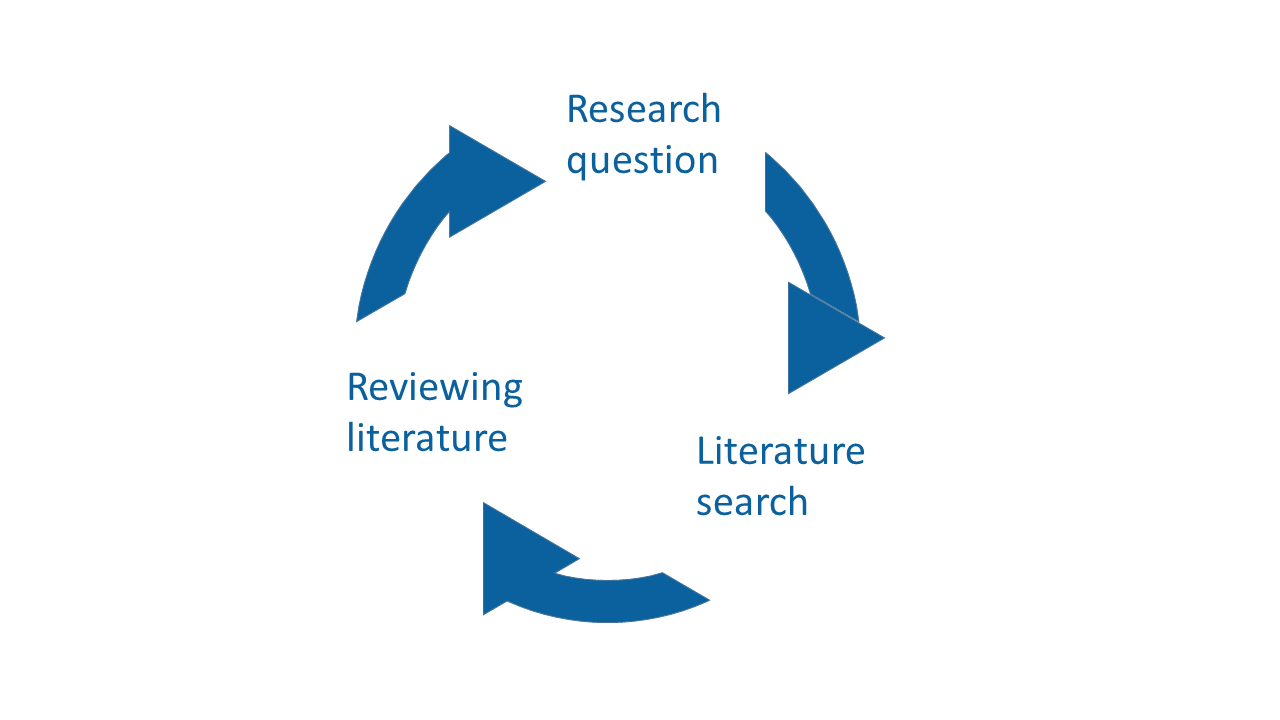
As a PhD candidate, you are expected to place your work in the context of current research. Reviewing scholarly literature, i.e. analysing and synthesising results, points of view or approaches, is critical to all scholarly work. The manner in which it is done depends on the discipline, the topic, and the individual research project.
On this page you will learn about:
- why we review literature
- what a review process entails
- standalone reviews (reviews as a genre) versus integrated reviews
Aims of reviewing literature
The 'literature review' is [...] your opportunity to engage in a written dialogue with researchers in your area while at the same time showing that you have engaged with, understood and responded to the relevant body of knowledge underpinning your research.
(Ridley, 2012, p. 3)
'Reviewing literature' refers to the various tasks and activities we perform in order to produce a review (see Elements of the review process, below). The scholarly text that is or includes a ‘literature review’ is the product derived from these tasks and activities.
Reviewing literature can help you to:
- get a general idea of your field of research
- situate your own work in relation to that of other scholars
- define and/or delimit the field(s) in which you want to position your research
- identify main developments and gaps in research
- justify the relevance of your research project
- define and adjust the scope of your investigation and your research question
- explain your focus and justify delimitations
- discuss different methods and theoretical approaches relevant to your topic
- deepen and widen your search
- assess the evidence for positions, hypotheses, policies or interventions
Reviewing literature can be a useful tool in the process of writing your dissertation, not least as a methodical approach to mapping previous and current research and situating your own research in relation to this body of work. Reflecting on previous research can help you to get started on your own work and to organise your writing based on the research of others.
Elements of the review process
Methods of reviewing literature vary, depending on the discipline, topic and individual research project. Nevertheless, the review process usually has some basic common elements or sub-processes:
- finding the relevant literature
- accessing the literature
- saving and organising the literature
- evaluating the literature and extracting what you need from it
- writing your review
It is a good idea to begin identifying and reviewing relevant literature at the start of your PhD work. Be aware, however, that the list of sub-processes above may not be as straightforward as it appears and that you may need to repeat steps or do them in a different sequence. They tend to influence each other, and the literature you find may lead you to reconsider and readjust your research question.

Stand-alone versus integrated reviews
Reviews come in many shapes and forms, and there is no single correct way to do a review. Methods of reviewing vary according to the research question, the discipline and its traditions, and the format of the final product. That being said, an important distinction must be made between integrated and stand-alone reviews.
Usually, literature reviews are integrated in, and provide background and context for, the research text of which they are a part. This may be a relatively brief text, such as a journal article, or a longer text, like a monograph or the summary chapter (kappe) of an article-based dissertation. Such reviews are integral to all research, and you will be hard pressed to find a piece of scholarly writing that does not include some form of literature review.
Occasionally, though, a thorough review is the primary goal of a research endeavour. In some disciplines, systematic reviews represent an important genre. Systematic reviews must adhere to strict methodological guidelines and reporting standards in order to be considered truly systematic. Other types of stand-alone reviews are, like systematic reviews, undertaken as self-contained research projects in their own right, culminating in a research report (e.g., a journal article).
While some PhD candidates do include such stand-alone reviews as part of their PhD work, and then typically as one of the articles in an article-based dissertation, most do not. If you are considering including a stand-alone review as part of your PhD work, you can read more about the various types of reviews by following the links below.
Regardless of the purpose of your literature review, we recommend that you first familiarise yourself with general principles for finding literature.
References
Boote, D., & Beile, P. (2005). Scholars before researchers: On the centrality of the dissertation literature review in research preparation. Educational Researcher, 34(6), 3-15. https://doi.org/10.3102/2F0013189X034006003
Booth, A., Sutton, A., & Papaioannou, D. (2016). Systematic approaches to a successful literature review (2nd ed.). Sage.
Ridley, D. (2012). The literature review. A step-by-step guide for students (2nd ed.). Sage.





